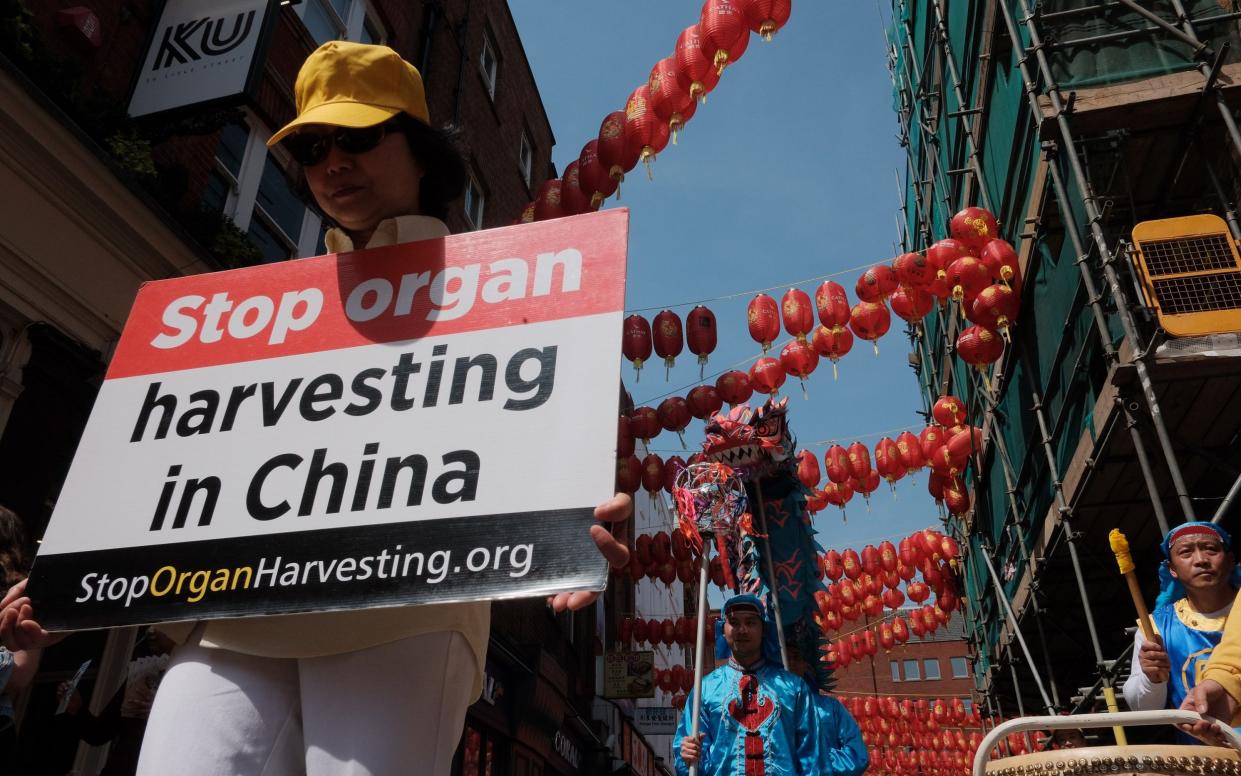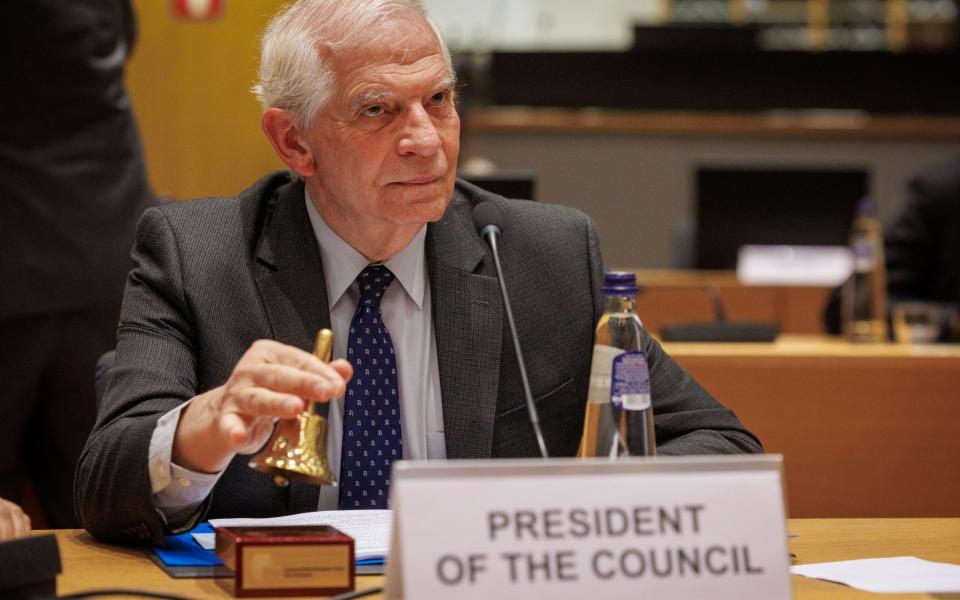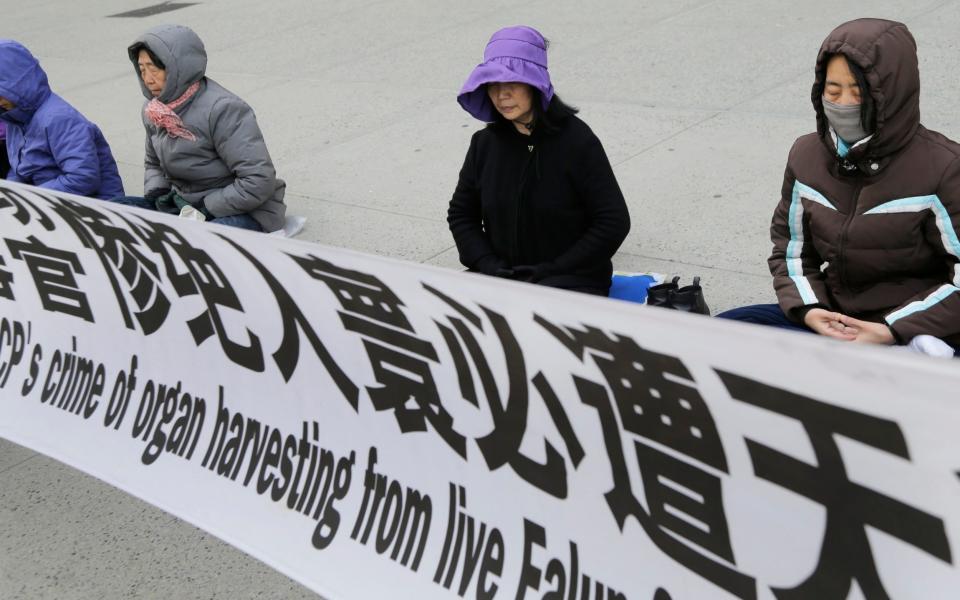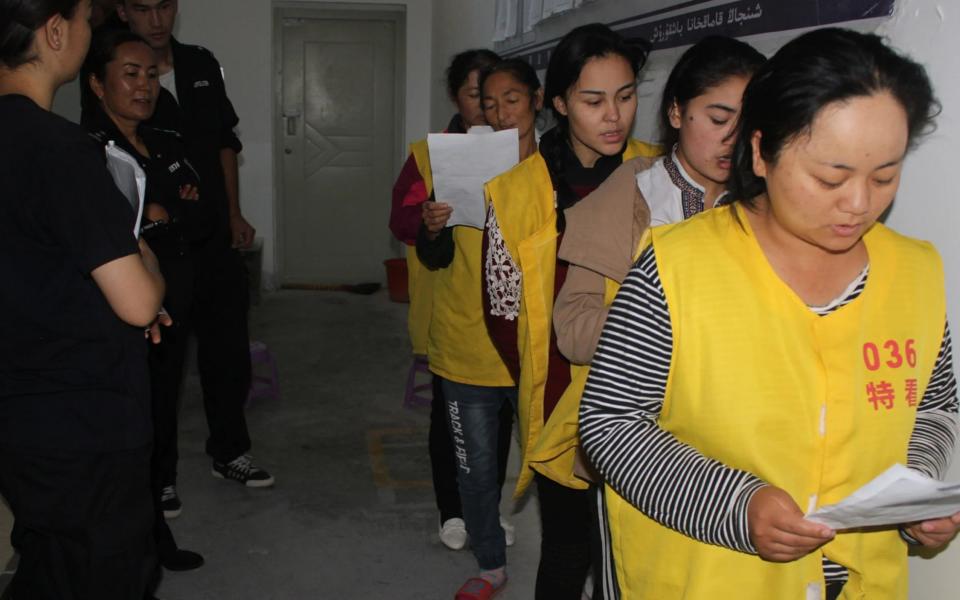EU risks ‘complicity’ in Chinese organ harvesting, human rights campaigners warn

The EU is potentially “complicit” in crimes against humanity in China involving illegal organ harvesting, human rights campaigners have warned.
The bloc’s top foreign representative has been urged to end medical collaborations with China, given the impossibility of knowing whether Chinese doctors and institutions are complicit in the practice.
Josep Borrell was also told to force health professionals in the EU to record when patients travel abroad for organs, in order to crack down on unethical transplants.
The warning came in an open letter organised by the International Coalition to End Transplant Abuse in China (ETAC), which warned of “rising cases of transplant abuse involving EU citizens”.

They are among a growing number of international experts and organisations sounding the alarm over the practice of killing political prisoners for their organs.
Researchers estimate that since the early 2000s there have been up to 100,000 transplants every year in China.
Falun Gong practitioners, a heavily persecuted group, are believed to be the main source, with Uyghurs also falling victim.
Lawyers have warned that the practice is so widespread throughout China that western institutions who collaborate with Chinese medics and hospitals – for example by providing surgical training or equipment – could be inadvertently complicit.
In March, The Sunday Telegraph revealed that Oxford University had organised training programmes attended by Chinese transplant doctors facing allegations of illegally harvesting human organs.

The programmes were endorsed by the European Society for Organ Transplantation.
Oxford said its Centre for Evidence in Transplantation had provided webinars to raise standards in research practices, rather than direct transplant practice or surgery training.
On May 1 the State Council of the People’s Republic of China brought into force a new regulation that international observers had hoped would improve transparency in the practice of organ donation and transparency in the country.
However, the details of the text fail to meet concerns and live up to international standards, they say.
Susie Hughes, ETAC executive directors, said: “In line with its human rights responsibilities, the EU must urgently investigate initiatives – backed by institutional funding – that are engaged with China’s transplant sector for potential breaches of international law.
“At the same time, the EU and its member states must confront rising cases of transplant abuse involving EU citizens.
“The EU must introduce mandatory reporting requirements on the provenance of organs obtained overseas to ensure compliance with international law and ethical standards.
“Failure to act risks the EU, its institutions or citizens being complicit in egregious abuses of human life and in the commission of crimes against humanity.”

The open letter, which has been endorsed by 14 human rights groups, calls on the EU to introduce legislation to force health professionals to record when patients travel outside the bloc for organ transplantation.
“We remain troubled by the absence of mandatory reporting and transparency measures within the EU regarding EU citizens obtaining organs in other countries,” it states.
Transplant tourism
“Currently, citizens of the bloc could potentially travel to countries like China and obtain illicitly harvested organs and there are no reporting mechanisms to identify this is happening.”
According to a 2022 Global Rights Compliance report, “instances of transplant tourism have increased two-fold in the last 20 years, now accounting for over 10 per cent of the world’s transplants”.
However, estimates regarding the number of EU citizens engaged in transplant tourism in China are unclear. For decades, Beijing claimed that its unusually large supply of organs came from legally executed prisoners.
It said the practice ended in 2015 and that all organs have been supplied voluntarily since then. However, experts argue that death-row prisoners could never have accounted for the scale of China’s organ transplantation programme.
Mr Borrell’s office has been approached for comment.

